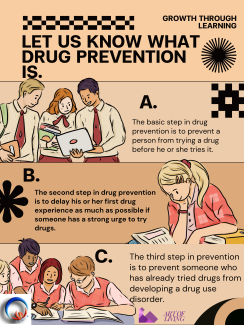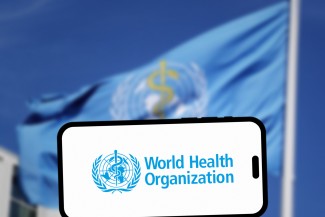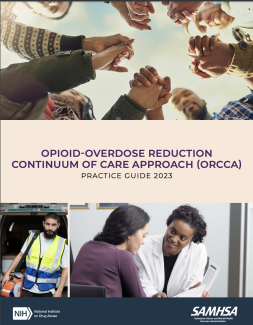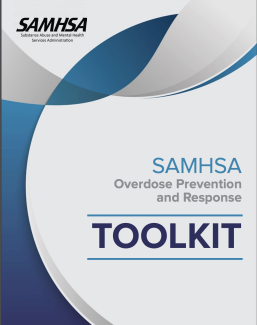Search
Call for Submissions: CPDD 87th Annual Scientific Meeting
New Orleans, June 14-18, 2025
The CPDD meeting is an in-person meeting with no digital participation options.
Symposium, Mini-Symposium, Workshop, and Forum
Deadline: Friday, October 18, 2024
Call for applications: Health Research at the Nexus of Humanitarian Crises and Climate Change
The Fogarty International Center of the U.S. National Institutes of Health (NIH) and partner organizations will host a Global Forum on Humanitarian Health Research (GFH2R) inclusive of public webinars and an in-person meeting in May 2025...
Prevalence of problematic pharmaceutical opioid use in patients with chronic non-cancer pain: A systematic review and meta-analysis
Abstract
Background and aims
Chronic non-cancer pain (CNCP) is one of the most common causes of disability globally. Opioid prescribing to treat CNCP remains widespread, despite limited evidence of long-term clinical benefit and evidence...
Trends of Buprenorphine Prescribing for Opioid Dependence Before, and During the Early and Later Part of the COVID-19: A Study from a Large Publicly-Funded Opioid Agonist Treatment Services in India
Background:
The COVID-19 pandemic has impacted how people access medications for opioid dependence. Researchers looked at monthly changes in several factors related to buprenorphine/naloxone (BNX) treatment over 56 months, including before...
Historical Trends in Cannabis Use Among U.S. Adults Ages 19–55, 2013–2021
The study analyzed national data from the U.S. to track trends in cannabis use from 2013 to 2021, focusing on changes in use among young and middle-aged adults. Researchers also looked at whether these trends varied by sociodemographic...
World Health Organization Risk Drinking Levels Among Mandated College Students: Associations With Alcohol Use, Mental Health, and Academic Performance
The World Health Organization (WHO) uses risk drinking levels (low, moderate, high, and very high risk) as a measure for reducing alcohol consumption in clinical trials. However, these levels have not been specifically evaluated for...
Digital Alcohol and Cannabis Ads, Consumption Frequency, and Driving Under the Influence
This study aimed to explore how exposure to digital advertising for alcohol and cannabis might impact the likelihood of young adults driving under the influence of these substances. The researchers investigated the associations between...
Why Do Only Some Cohort Studies Find Health Benefits From Low-Volume Alcohol Use? A Systematic Review and Meta-Analysis of Study Characteristics That May Bias Mortality Risk Estimates
This study looks at how certain factors in research can skew the results when estimating the health effects of drinking small amounts of alcohol. These biases can affect public health advice and shape how people view alcohol’s potential...
Day 1, 11:00 - 12.30, ISSUP, Joining Together in Action with the Global Coalition to Address Synthetic Drug Threats
Panel presented at Thessaloniki 2024: Joining Together in Action with the Global Coalition to Address Synthetic Drug Threats, on the 26th of June, 2024.
Moderator: Ms. Margaret H. Nardi (⚑ United States) - Deputy Assistant Secretary...
Overdose Resource Exchange (ORE)
Overdose Resource Exchange (ORE) is a central collection of CDC-reviewed communication materials and educational resources about opioid misuse, addiction, treatment, and overdose prevention for state, territorial, and local health...
Opioid-Overdose Reduction Continuum of Care Approach (ORCCA) Practice Guide 2023
This guide was drawn from HEALing Communities Study (HCS) learnings to-date and expert insights to provide guidance regarding implementation of ORCCA menu strategies.
Overdose Prevention and Response Toolkit
SAMHSA’s updated Overdose Prevention and Response Toolkit provides guidance to a wide range of individuals on preventing and responding to an overdose. The toolkit also emphasizes that harm reduction and access to treatment are essential...
Current Perspectives on the Clinical Research and Medicalization of Psychedelic Drugs for Addiction Treatments: Safety, Efficacy, Limitations and Challenges
Mental health disorders and substance use disorders (SUDs) in particular, contribute greatly to the global burden of disease. Psychedelics, including entactogens and dissociative substances, are currently being explored for the treatment of...
Empathy, Self-Compassion and Process addictions among student-athletes, non-athletes and students seeking residential rehabilitation
Abstract
Objective: Empathy and self-compassion are two key factors that may help in the treatment of addiction-related disorders. This is a study to compare the scores for empathy, self-compassion and process addictions among student...
OLWENGO: Harm reduction step forward in Kenya's drug policy
Recently, the Woman Representative of Nairobi County, Hon Esther Passaris, had a key consultative meeting with...
Enhancing Well-being and Preventing Burnout Amongst Treatment Practitioners
Community Mobilisation, Co-Development, and Program Evaluation: Experiences from STAD’s Community-Based Interventions
SAMHSA’s 21st Prevention Day - Call for Abstracts
Now Open: Call for Abstracts!
Share your substance use prevention successes, challenges, lessons learned, and insights with colleagues from across the country.
Deadline: September 4, 2024 (at 11:59 p.m. ET)
******************************...
2024 UNODC World Drug Report Highlights, brief reflections
The World Drug Report (WDR) is published by the United Nations Office on Drugs and Crime (UNODC) (United Nations Office on Drugs and Crime, 2023). It serves to collate data received from United Nations member states which enables the...
Share the Knowledge: ISSUP members can post in the Knowledge Share – Sign in or become a member









